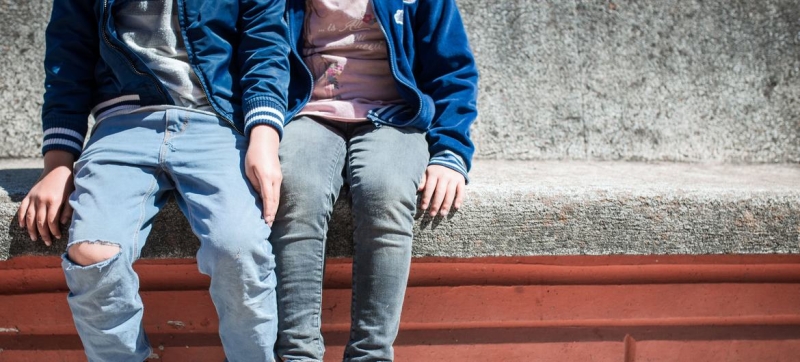
More than 90 percent of parents believe that physical punishment and psychological aggression are unnecessary, but many still use them. UNICEF: two thirds of children in Europe and Central Asia face violent parenting methods Human rights
Almost every third child in Europe and Central Asia is subjected to physical punishment at home, and two thirds of children face psychological aggression. These are the most common forms of violence against minors, according to a new report released today by the United Nations Children’s Fund (UNICEF).
The report, Where We Live and Learn: Violence against Children in Europe and Central Asia, shows that physical punishment, including spanking, pinching and hitting, is used against more than 30 percent of the region’s children. And psychological aggression, including threats, humiliation and verbal abuse, affects up to 69 percent of children in the 15 countries and territories in the region for which data is available.
“Violence impacts the lives of too many children in Europe and Central Asia, often at the hands of the people who should be protecting and caring for them, said UNICEF Regional Director for Europe and Central Asia Regina De Dominicis. – And while banning all forms of corporal punishment in all circumstances is an important step, governments must go beyond that to invest in parent education, strong protection systems, and community-based services to prevent violence and respond to it when it occurs. measures.”
Vicious circle of violence
Data shows that more than 90 percent of parents believe that physical punishment and psychological aggression are unnecessary, but many still use them. This is often due to their inability to control their own emotions and unawareness of the long-term harmful effects of violent discipline on children’s development and behavior.
Read also:
WHO report: corporal punishment is widespread and harmful to children’s health
Children exposed to physical or psychological abuse are more likely to suffer from mental health problems disorders, have difficulties at school and exhibit aggressive behavior. These effects may continue into adulthood, increasing the likelihood of violence in their future families and communities. This contributes to the continuation of the vicious circle of violence passed down from generation to generation.
Today, corporal punishment in all settings, including in the home, is prohibited in 38 of the region’s 55 countries and territories, but legislation must be supported by specific support for parents and caregivers, including parent education programs and family support services.
Multidisciplinary support
The report also analyzes the prevalence of sexual violence and violence against children in school:
- Between 1 and 14 percent of women in 19 EU countries report having been subjected to sexual violence before the age of 15, although the actual numbers are likely much higher.
- On average, 11 percent of children in the region report being bullied at school, 15 percent report experiencing cyberbullying, and 10 percent have participated in fights.
The global cost of violence against children, according to UNICEF, is estimated at $7 trillion a year, which is about 8 percent of global GDP.
Promising models such as Barnachus, which provides child survivors of violence with multidisciplinary support tailored to their interests, demonstrate that coordinated services can help children overcome the effects of violence and achieve justice.
UNICEF makes six recommendations to accelerate progress:
- prohibit all forms of corporal punishment in all settings circumstances;
- invest in parent education programs and family support services that encourage positive discipline;
- expand access to justice and inclusive social services children;
- increase the implementation of safe and inclusive learning environments free from peer and teacher violence;
- prioritize data collection and monitoring to track cases violence and assessing progress;
- ensure that all children, including those with disabilities, in the process of displacement or in care, receive support.
Ending violence against children is a legal obligation under the Convention on the Rights of the Child and a global commitment under the 2030 Agenda for Sustainable Development. However, the Europe and Central Asia region is not meeting its targets to achieve this goal.
